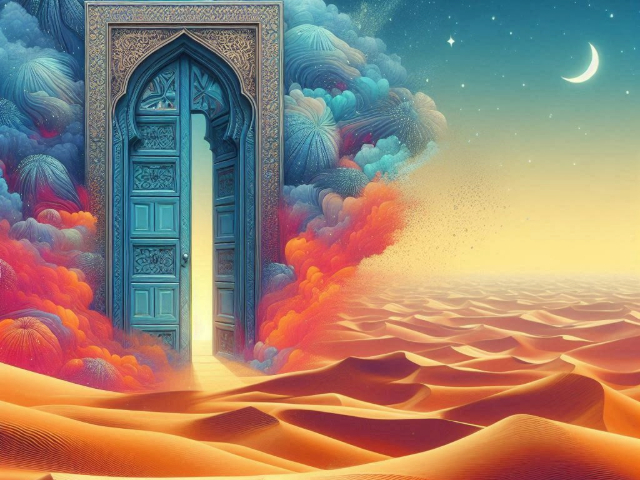Arabic Language Day 2024: Merging Tradition and Innovation with AI

10 Fascinating Facts About the Arabic Language
Every year on December 18, the world celebrates Arabic Language Day, a tribute to one of the most beautiful and influential languages in history. Arabic, spoken by over 400 million people globally, is not only a cornerstone of cultural identity but also a thriving medium in the digital and AI-driven age.
This year, the celebration takes a futuristic turn. Under the theme “Arabic Language and AI – Advancing Innovation While Preserving Cultural Heritage”, the event at UNESCO Paris invites experts, linguists, and technologists to discuss how Arabic can adapt to and thrive in the age of artificial intelligence. The intersection of tradition and technology opens exciting avenues for preserving Arabic's rich heritage while embracing its potential in the digital landscape.
Arabic and Artificial Intelligence: Bridging the Gap
The rise of AI technologies has posed unique challenges for Arabic. Its complexity, rich morphology, and diverse dialects have historically made Arabic a challenge for AI applications. But advancements in natural language processing (NLP) and machine learning are changing the game. From AI-powered translation tools to dialect recognition systems, these innovations are ensuring that Arabic not only survives but thrives in a tech-driven world.
At the UNESCO event, discussions will focus on:
• How AI can support Arabic language preservation.
• The role of Arabic in global innovation.
• Ensuring equitable representation of Arabic in the AI age.
10 Fascinating Facts About the Arabic Language
1. How Old Is Arabic?
The origins of Arabic are debated. Some records suggest it dates back to the 2nd to 4th century BCE, making it one of the world's oldest languages.
2. Oldest Arabic Inscription
The oldest known Arabic inscription, dating back to 470 CE, was discovered in Najran, Saudi Arabia, in 2014.
3. Arabic’s Linguistic Relatives
While no records of the original Proto-Semitic language exist, the similarities between these languages point to a common origin.
4. Arabic Dialects
Arabic boasts over 30 dialects, which vary significantly by region. These include Modern Standard Arabic (used in formal settings) and regional colloquial forms that can be as distinct as separate languages.
5. Maltese: A European Relative
Maltese, spoken in Malta, is a European language derived from Arabic. Although heavily influenced by Italian and English, its Arabic roots remain evident.
6. Arabic Loanwords in English
Words like algebra, coffee, arsenal, and safari have Arabic origins. For example, safari comes from the Arabic word safar (journey), while arsenal derives from dar al-sina' (house of production).
7. Arabic and the European Renaissance
Arabic played a vital role in the European Renaissance by transmitting Greek and Roman scientific and philosophical knowledge to Europe. This exchange of ideas bridged cultures and advanced human understanding.
8. Arabic in Modern Technology
AI and chatbots are beginning to tackle the complexities of Arabic, including its diverse dialects. For instance, Dubai-based WideBot has developed technology that incorporates formal and informal Arabic while recognizing nuances like tone and sentiment.
9. Arabic Has No Capital Letters
Unlike many other languages, Arabic does not use capital letters. Instead, meaning and emphasis are conveyed through word placement, context, and diacritical marks.
10. 10 Synonyms for one Word
Arabic has over 10 synonyms for the word "love," each describing different levels and intensities. This linguistic richness reflects the depth of emotion the language can convey.
________________________________________
Arabic Language Day reminds us of Arabic's timeless significance and its potential to evolve in the digital age. Whether through its influence on global history or its adaptability to modern AI, Arabic remains a testament to the power of language to connect, innovate, and preserve culture.
Celebrate Arabic Language Day on December 18, 2024, at UNESCO Paris or wherever you are, and join the movement to honor this vibrant and evolving language.

